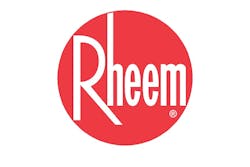New Standards for Water Heaters: What They Mean for You
On April 30th, the Department of Energy pre-published the final consumer water heater Energy Conservation Standard Rule. DOE last updated residential water heater efficiency standards—which are required by Congress—in 2010. It is estimated the new standards will go into effect by May of 2029.
The new standards are expected to save US homeowners billions on their utility bills, as well as reduce energy waste and carbon emissions. The standards were developed with input from a wide variety of stakeholders across industry and government. Incentive packages have been developed (largely through the Inflation Reduction Act) with an emphasis on affordability and accessibility.
Moreover, there are any number of initiatives moving forward at the state and local level, including bans on natural-gas fired water heating appliances.
To try and get a better grasp of what these changes will mean for the people who have to install and service residential water heaters—and as a part of that job explain the changes to their customers—CONTRACTOR spoke with two experts at Rheem.
Rheem is a company that needs no introduction, with nearly 100 years as a world-leading manufacturer of heating, cooling, water heating, pool & spa heating and commercial refrigeration products. Matthew Thornblad is the company’s Senior Public Policy and Communications Director. Tom McConahay is Rheem’s Senior Manager, National Plumber Support.
CONTRACTOR: The new standards cover a lot of territory. As a manufacturer, are the proposed efficiencies achievable at a price point that you feel consumers are going to find acceptable?
THORNBLAD: At Rheem, we're still reviewing the rule. But with the recent publication, what we now have is certainty around the expected compliance for the rule.
We believe in many respects the amended efficiency standards the DOE prescribed are technologically achievable and economically justified. We believe that the three-to-five-year runway the DOE has provided to the industry will allow manufacturers to scale and to develop consumer water heating products that will be cost competitive and meet the new efficiency standards.
As you know, the department has prescribed an efficiency standard for electric tank water heaters that will largely be met using heat pump technology. They chose to modestly change efficiency standards for gas tank products that will be achieved with noncondensing gas technology. And the department elected to remove and defer for a later date, rather than setting a standard for gas instantaneous (tankless) consumer water heaters.
CONTRACTOR: Are there any other pieces of legislation currently moving forward, at either the city, state or federal level that you and Rheem are keeping an eye on?
THORNBLAD: One thing we would draw your attention to in particular is what we're seeing in California. There are several local air quality management districts that are proposing low or zero NOx emission standards for commercial water heaters, boilers and consumer water heaters. Specifically, the South Coast Air Quality Management District and the Greater Los Angeles area. This would include commercial water heaters, boilers and gas-fired pool heaters with compliance beginning as soon as January 2026.
At Rheem, we believe there's going to be an acceleration of building decarbonization through electrifying space and water heating products. But that implementation will be something of a patchwork. In some parts of the country, it will depend on climate or on the prevailing electricity rates. If you look at the southeast, in the Carolinas in particular, they have very high electric heat pump penetration already.
Other parts of the country, for example North Dakota where historically gas rates have been low, there may be less market penetration with electric water heating and space heating.
We obviously remain committed to supporting our channel partners so they can succeed and grow. We are doing a lot around education for specifying engineers, architecture and engineering firms, and certainly commercial general contractors. We are developing course curriculum—that can be delivered in person, virtually or through webinars—that will take the training that we have and deliver it to more installers, plumbers and contractors in a faster way. As product life cycles potentially shorten because of regulatory changes, we need to be sure that we can give installers and contractors the skills they need to develop and sell these products. It’s an important part of what we’ll be focusing on for the next several years.
CONTRACTOR: Which also means education will be an important consideration for anyone in the business of installing and servicing water heaters for years to come?
McCONAHAY: For plumbers to service their customers, they’ll need to better understand the products which they’re selling, installing and servicing.
Many of today’s products are now connected, which gives the customer the ability to control and monitor their water heater (from common smart devices) at their fingertips. This technology benefits the plumbers and contractors as well, when it comes to troubleshooting and servicing these smart products.
In addition, there are several rebates available for both the installing plumber and consumer to help with the adoption of these products. Whether it’s a local, utility, or federal rebate such as the IRA (Inflation Reduction Act), there are typically several available, depending on where you are located. It’s in both the plumber and their customer’s best interest to stay in the know when it comes to what rebates are available.
The good news is that there’s a lot of information available, and Rheem is committed to training today and tomorrow’s plumbers and contractors on these products.
About the Author
Steve Spaulding
Editor-in-Chief - CONTRACTOR
Steve Spaulding is Editor-in-Chief for CONTRACTOR Magazine. He has been with the magazine since 1996, and has contributed to Radiant Living, NATE Magazine, and other Endeavor Media properties.

